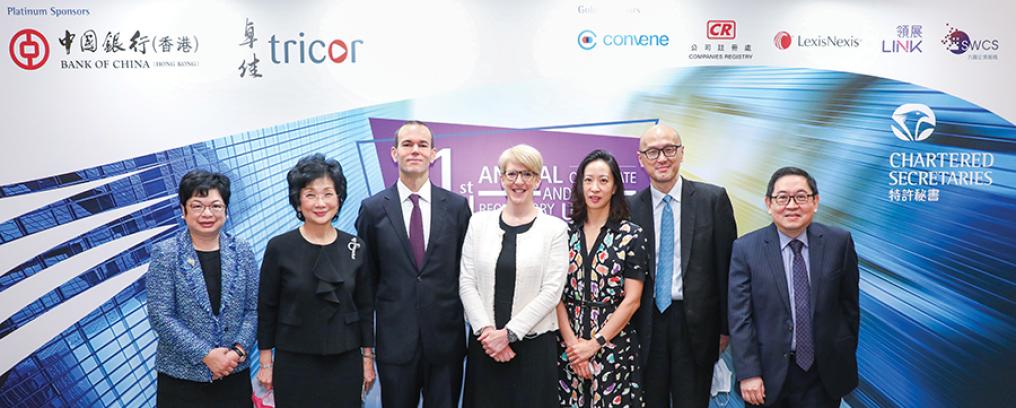What is your role as a governance professional?
‘I provide oversight of all sorts of risks for several business lines within my bank. Risk management is a key component of governance, assisting the business to better identify and manage risks so as to accomplish business objectives and fulfil regulatory requirements. Balancing risks and returns is an art as well as a science.’
What was your career path to your current role?
‘I was trained as a professional auditor and company secretary in one of the big four firms and then moved into the financial sector, taking on various roles in finance, operations, risk and compliance.’
What value does governance bring to organisations and to wider society?
‘Governance is the foundation stone of a sound organisation. Stakeholders, including shareholders, regulators, employees, customers, suppliers and the general public have expectations that the organisation should establish proper governance controls to ensure that the business is responsibly run to protect their interests. Deficiencies in governance is the most common underlying reason that organisations fail, whether that failure is attributed to financial misstatements, scams or management fraud. A company with good corporate governance, in particular good transparency and holding its people accountable, earns the trust of its stakeholders, attracts customers and has better access to the financial markets for fund-raising.’
What qualities do you think are needed to be a successful governance professional?
‘Continuous training, acting honestly and faithfully, avoiding biases and having an independent mindset are key. Also, governance professionals should be able to deal with people and manage expectations. The three Cs (collaboration, critical thinking and creativity) will drive the success of future generations. Moreover, in this era, governance professions should be masters of data governance – they need to be able to capture, analyse and disseminate different sorts of data.’
How do you think governance will evolve in the future?
‘Increasingly, governance professionals will need to have higher academic and professional qualifications and they will need to adhere to higher professional and ethical standards. Governance will also need to adapt to the digital world – especially in terms of providing oversight in the virtual work space, cloud computing and the use of artificial intelligence.’
What inspires you in your life and work?
‘Helping my family, friends and employer, as well as wider society. In my view, achievement should be measured by what people still remember of you when you are gone. Set a good example for others and have the courage to attempt new challenges while you can.’
How do you fill your time outside of work?
‘Balancing work and life commitments is very important, in particular managing your physical health and emotional well-being. There are also great benefits from having a keen interest in learning new things, visiting new places and meeting new people. Participating in activities or training outside your industry will also greatly enhance your capacity for lateral thinking. Just randomly watching YouTube videos outside your interest areas can be surprisingly rewarding.’



